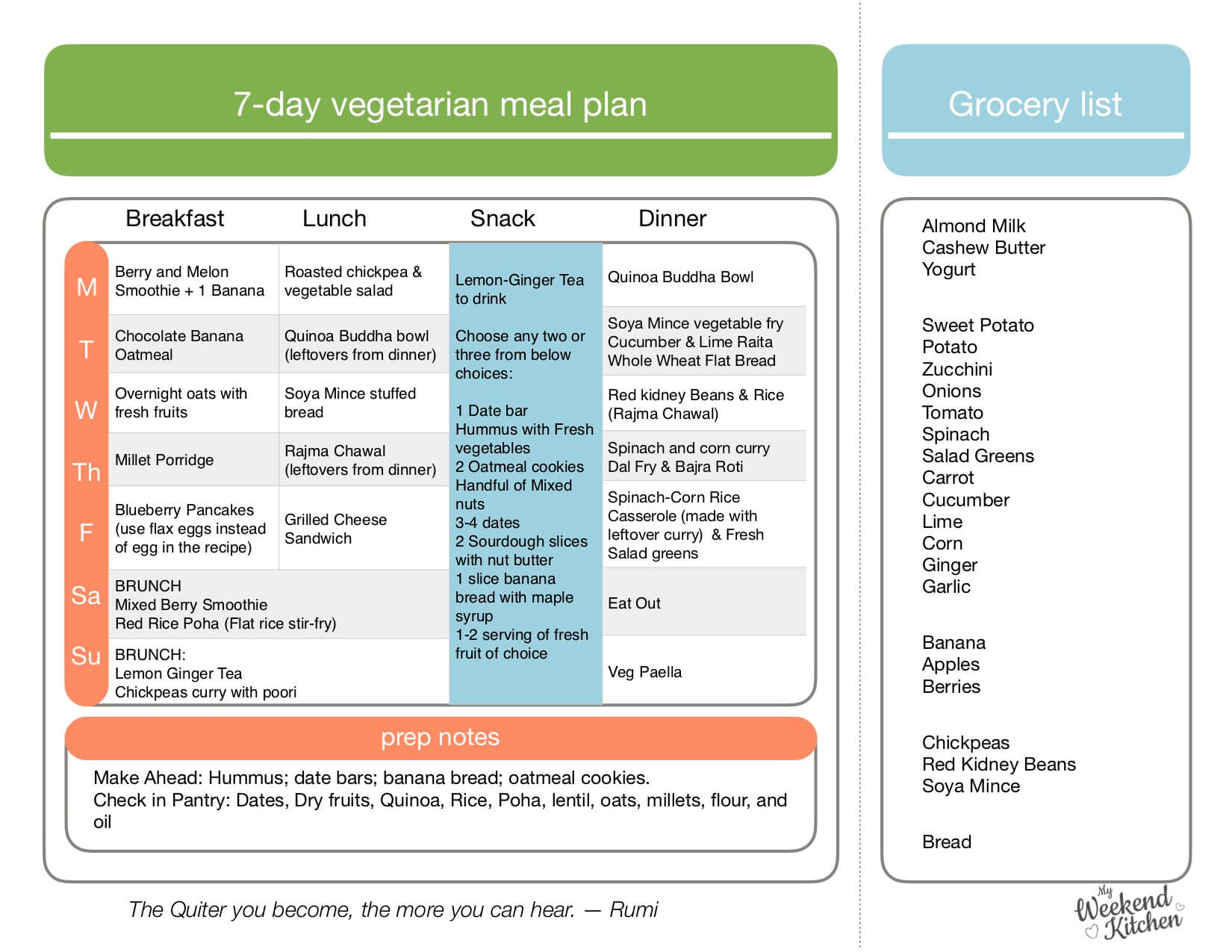

While your protein needs can be met easily on a vegetarian diet, you may encounter difficulties at first as you eliminate meat from your diet.
#VEGETARIAN MEAL PLANNING FULL#
If you don’t eat enough protein, you might eat more food to feel full - hindering your weight loss efforts. Protein can increase fullness by decreasing levels of ghrelin, a hormone that regulates hunger, which may in turn lower your overall calorie intake and boost weight loss ( 8, 9, 10).


This is especially common if you skimp on protein intake. Eating large portions and not enough proteinĮating more calories than you need can result in weight gain.Įven if you’re filling up on nutritious foods on a vegetarian diet, you may be helping yourself to larger portions than necessary. While vegetarianism may seem like an effective way to shed excess weight, several factors may prevent this from happening. It has been linked to weight loss and a reduced risk of chronic diseases, but these benefits depend on which foods you eat.īarriers to losing weight on a vegetarian diet SummaryĪ vegetarian diet excludes meat, fish, and poultry and mostly focuses on plant foods. Overeating or choosing too many highly processed foods will provide fewer benefits than a diet based on unrefined, whole plant foods - and may have several downsides. However, the benefits of vegetarianism largely depend on the types of foods you eat and your overall dietary habits. What’s more, studies show that following a vegetarian diet can be an effective way to lose weight ( 6, 7). Since this diet emphasizes nutrient-rich foods, it’s linked to a reduced risk of heart disease, certain cancers, diabetes, and high blood pressure ( 2, 3, 4, 5). These foods are rich in fiber, micronutrients, and beneficial plant compounds, and tend to be lower in calories, fat, and protein than animal foods. Vegetarian diets typically focus on fruits, vegetables, whole grains, legumes, nuts, and seeds. Other plant-based eating patterns include the flexitarian (which includes some animal foods but is mostly vegetarian) and pescatarian (which includes fish but not meat) diets. Vegan: excludes all animal products, including honey, dairy, and eggs.Ovo-vegetarian: allows eggs but excludes dairy, meat, fish, and poultry.Lacto-vegetarian: allows dairy but excludes eggs, meat, fish, and poultry.Lacto-ovo-vegetarian: allows eggs and dairy but excludes meat, fish, and poultry.Some people may follow this diet for religious or ethical reasons, while others are drawn to its possible health benefits. Vegetarian diets exclude meat, fish, and poultry.


 0 kommentar(er)
0 kommentar(er)
